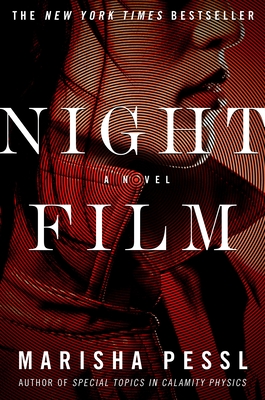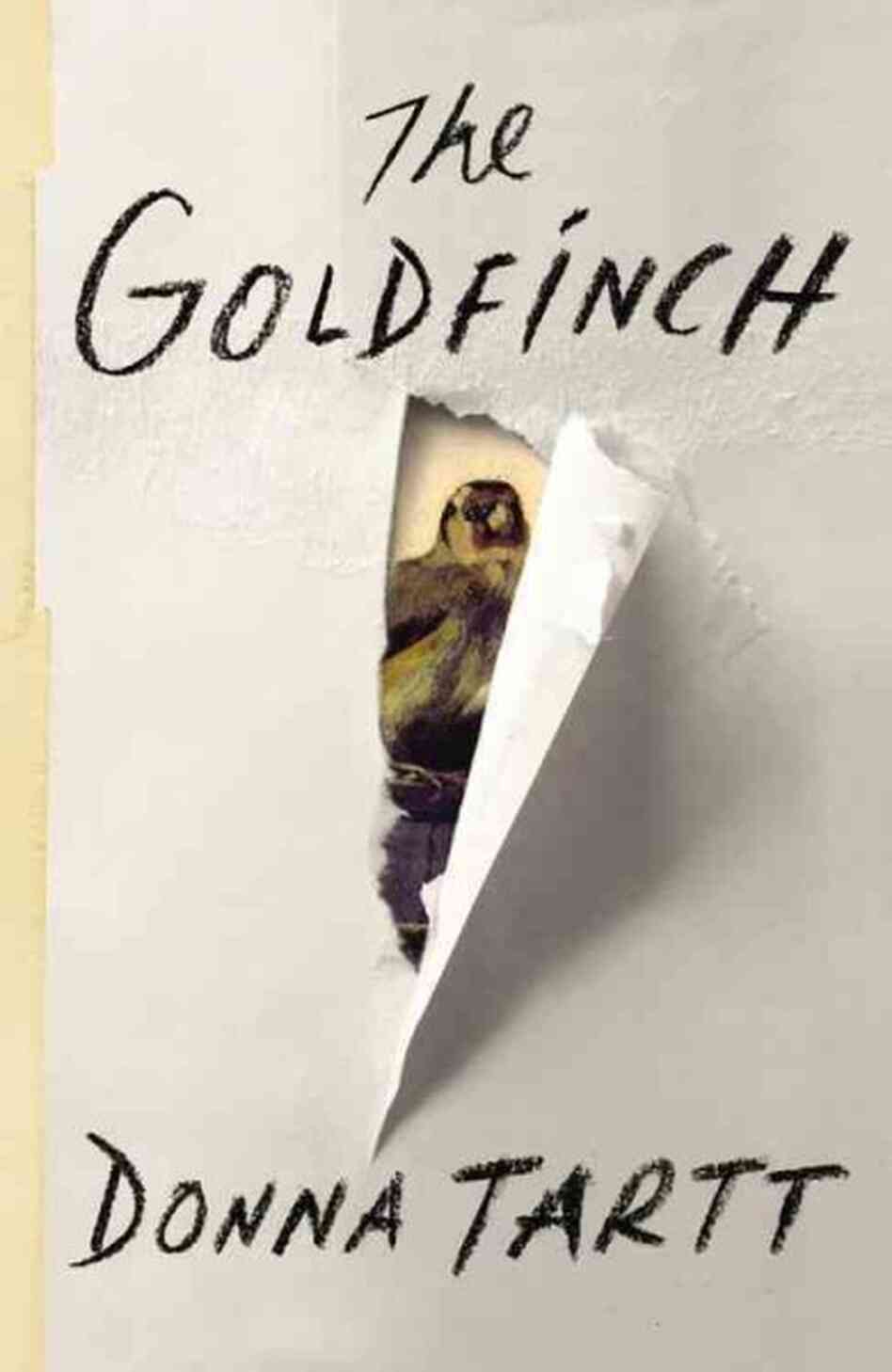Nabokovilia & Nabokomaybilia: Marisha Pessl's Special Topics in Calamity Physics & Night Film
Marisha Pessl's first novel, Special Topics in Calamity Physics, features a pretty clear case of Nabokovilia:
"You're a sick, sick liar! You're evil!"
I threw Lolita (Nabokov, 1955).
"I hope you die a slow death riddled with unbearable pain!"
Although deflecting the books with his arms, and sometimes legs, Dad didn't stand up or try to restrain me in any way. He remained in his reading chair.
"Get a hold of yourself," he said. "Stop being so melodramatic. This isn't a miniseries on AB --"
I hurled The Heart of the Matter (Greene, 1948) at his stomach, Common Sense (Paine, 1776) at his face. (461)
I'm nearly done reading Pessl's sophomore (and excellent) Night Film, which doesn't have anything quite so clear, though there's a strong possibility of some Nabokovian nods:
She was Beckman's latest housekeeper. Ever since his beloved wife, Véra, had died years ago from cancer, Beckman, totally unable to take care of himself, hired a multitude of petite Russian women to do it for him. (48)And another possible Nabokov nod:
"Need some help?"
"Yes," said Nora, setting a book she'd been leafing through -- Signs, Symbols, & Omens -- back down on the stand. "We were hoping someone could help us identify some herbs and roots that we found in strange patterns in our friend's room." (229)
NaboPop: Nabokov's Pale Fire in Spike Jonze's Her
The Vintage paperback edition of Vladimir Nabokov's Pale Fire is visible just above and to the right of Joaquin Phoenix in this frame of Spike Jonze's new movie Her (screen capture below totally stolen from Zemb.la; thanks to the Nabokv-L forum for the tip):
See also: Nabokov's Ada pops up just behind Paul Rudd in I Love You, Man.
See also: Nabokov's Ada pops up just behind Paul Rudd in I Love You, Man.
Sighting: Pnin in Best American Stories 2013
Elizabeth Tallent on her story "Wilderness," and on professor types in fiction (as seen in the back matter of 2013's Best American Short Stories): "Maybe it mattered less, but there was also the grain-of-sand/oyster vexation of fictional professors' almost always being assholes, with Pnin as the fantastically lovable exception to the rule. In fiction, professor is predatory, student is prey. This ironclad dyad goes to bed without caring much about the intricacy, anxiety, and comedy of teaching. So there's room" (337).
The same anthology also features Lorrie Moore's "Referential," a tribute/take-off of Nabokov's "Signs and Symbols."
The same anthology also features Lorrie Moore's "Referential," a tribute/take-off of Nabokov's "Signs and Symbols."
Nabokovilia: Donna Tartt's The Goldfinch
Nabokovilia in Donna Tartt's The Goldfinch:
Apart from that, and the door where the blonde had disappeared, the only light came from a lamp which threw a sharp white circle on melted candles, computer cables, empty beer bottles and butane cans, oil pastels boxed and loose, many catalogues raisonnes, books in German and English, including Nabokov's Despair and Heidegger's Being and Time with the cover torn off, sketch books, art books, ashtrays and burnt tinfoil, and a grubby looking pillow where drowsed a gray tabby cat. (574)
Also:
Clearly this Everett ("poor as a churchmouse" -- his phrase) was living off her money, Uncle Welty's money rather, old Europe preying off young America, to use a phrase I'd employed in my Henry James paper in my last semester of school. (463)
Compare to this bit in Nabokov's "On a Book Entitled Lolita":
...an otherwise intelligent reader who flipped through the first part described Lolita as "Old Europe debauching young America," while another saw in it "Young America debauching old Europe."
Bonus bit: Tartt quoting Nabokov on what she wants from awesome books.
Apart from that, and the door where the blonde had disappeared, the only light came from a lamp which threw a sharp white circle on melted candles, computer cables, empty beer bottles and butane cans, oil pastels boxed and loose, many catalogues raisonnes, books in German and English, including Nabokov's Despair and Heidegger's Being and Time with the cover torn off, sketch books, art books, ashtrays and burnt tinfoil, and a grubby looking pillow where drowsed a gray tabby cat. (574)
Also:
Clearly this Everett ("poor as a churchmouse" -- his phrase) was living off her money, Uncle Welty's money rather, old Europe preying off young America, to use a phrase I'd employed in my Henry James paper in my last semester of school. (463)
Compare to this bit in Nabokov's "On a Book Entitled Lolita":
...an otherwise intelligent reader who flipped through the first part described Lolita as "Old Europe debauching young America," while another saw in it "Young America debauching old Europe."
Bonus bit: Tartt quoting Nabokov on what she wants from awesome books.
Convergences: Scooby and the Narcos, Archie and the Undead
Scooby and Archie are both taken to some pretty dark places -- the first is a totally imaginary scenario (in a novel that also gives you Homes Simpson in a noir called D.O.H.), the second an actual thing you can pick up. Thomas Pynchon's Bleeding Edge provides an imaginary Scooby Doo set-up that actually sounds just a smidgen less dark than what the Archie folks are going to do to Archie in a five-issue run.
Scooby Goes Latin! (1990), from Pynchon's Bleeding Edge:
"Hi, mom." She wants to enfold him forever. Instead lets him recap the plot for her. Shaggy, somehow allowed to drive the van, has become confused and made some navigational errors, landing the adventurous quintet eventually in Medellín, Colombia, home at the time to a notorious cocaine cartel, where they stumble onto a scheme by a rogue DEA agent to gain control of the cartel by pretending to be the ghost -- what else -- of an assassinated drug kingpin. With the help of a pack of local street urchins, however, Scooby and his pals foil the plan.
The cartoon comes back on, the villain is brought to justice. "And I would've gotten away with it, too," he complains, "if it hadn't been for those Medellín kids!"
From this NPR story on Afterlife with Archie:
Reggie Mantle runs over Jughead's fluffy pup Hot Dog. (Of course Reggie started it!) Jughead takes Hot Dog to Sabrina the teen witch, who using the Necronomicon and channeling Pet Sematary, brings him back to life. (And messes it up, 'cause that's what she does!) Hot Dog bites Jughead, who ends up consuming victims at the Halloween Dance. (He is always hungry!)
Scooby Goes Latin! (1990), from Pynchon's Bleeding Edge:
"Hi, mom." She wants to enfold him forever. Instead lets him recap the plot for her. Shaggy, somehow allowed to drive the van, has become confused and made some navigational errors, landing the adventurous quintet eventually in Medellín, Colombia, home at the time to a notorious cocaine cartel, where they stumble onto a scheme by a rogue DEA agent to gain control of the cartel by pretending to be the ghost -- what else -- of an assassinated drug kingpin. With the help of a pack of local street urchins, however, Scooby and his pals foil the plan.
The cartoon comes back on, the villain is brought to justice. "And I would've gotten away with it, too," he complains, "if it hadn't been for those Medellín kids!"
From this NPR story on Afterlife with Archie:
Reggie Mantle runs over Jughead's fluffy pup Hot Dog. (Of course Reggie started it!) Jughead takes Hot Dog to Sabrina the teen witch, who using the Necronomicon and channeling Pet Sematary, brings him back to life. (And messes it up, 'cause that's what she does!) Hot Dog bites Jughead, who ends up consuming victims at the Halloween Dance. (He is always hungry!)
HBO: Stacking TVs On Top of Other TVs Since 1998
Enough people have said enough things about the parallels between Sex and the City and Girls, Shoshana included. One thing's for sure: If you are a hotshot fictional New York artist, and you're in either show, you will totally have a thing for stacking TVs on top of other TVs:
HBO: It's not TV. It's TVs on top of other TVs.
Bonus: Actual art installation involving TVs stacked on top of other TVs. David Welch's Totem Goals (more at The Morning News):
 |
| Girls ("Bad Friend," 2/27/13) |
 |
| Girls ("Bad Friend," 2/27/13) |
 |
| Sex and the City ("Models and Mortals," 6/14/98) |
 |
| Sex and the City ("Models and Mortals," 6/14/98) |
Bonus: Actual art installation involving TVs stacked on top of other TVs. David Welch's Totem Goals (more at The Morning News):









